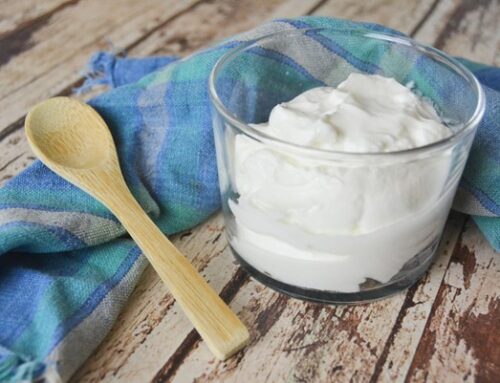Healthy ageing depends on diet, and protein plays an important role in fighting health problems that arise after 50.
What food products should you offer senior citizens to prevent deficiencies and fight loss of muscle and bone mass and arthritis? How can protein-rich foods for senior citizens such as beverages, puddings and shakes be designed with good taste and texture and be enjoyable to consume?

Senior citizen health in figures
Senior citizens are becoming a larger and larger portion of the world population.
According to the WHO, there will be 2.1 billion people over the age of 60 in 2050. Senior citizens over the age of 80 will number 426 million, which is three times more than in 2020.
This transformation began in countries with a high standard of living, such as those in Europe, North America and Japan where the population is ageing rapidly (one in three people in 2020). Other countries are now being affected, as well.
Global society is ageing, and this age group does not feel that they are in good health. In France, for example, according to the INSEE, more than one in five people over age 75 assesses their health as poor or very poor.
At the same time, the more senior citizens advance in age, the less they continue to live at home. One in five senior citizens over age 85 is in assisted living, yet they often feel in better health when they live at home.
Beyond society’s moral obligation to care for our elders, the health of senior citizens is a major challenge.
What do senior citizens suffer from?
Biologically speaking, ageing means progressive molecular and cellular degeneration. Physical and mental capacities deteriorate and the risk for illness increases.
However, these changes are not strictly proportional to number of years lived. Some seniors are still active at 75, while others already have debilitating health problems at 60. These individual differences are due to socio-cultural factors, hazards experienced during life (challenges, trauma, etc.), lifestyle and diet.
This is why activity and diet (and the selection of protein-rich foods) for senior citizens must be adapted to different population groups: active, dependent, living at home, assisted living, still working, retired, etc.
Senior citizens report:
- rheumatic diseases, related to bones and joints (osteopenia, osteoporosis, arthritis in the hip or knee, rheumatoid arthritis, leading to a broken hip, etc.)
- muscular pathologies such as sarcopenia
- cardiovascular disease
- diabetes
- oral and vision problems (difficulty swallowing, less saliva, etc.)
- neurological disorders (Alzheimer’s, Parkinson’s, etc.)
- depression
- physical limitations (loss of mobility, etc.)
- and malnutrition for older seniors.
How can health problems in senior citizens be prevented?
It is possible to fight degeneration from ageing using diet and physical and intellectual activity.
One of the most important intervention strategies is fighting muscle loss. When we lose muscle, we lose independence. Senior citizens sometimes have difficulty walking, but it is possible to counteract this phenomenon with gentle physical activity (walking, swimming, biking, etc.) and by consuming protein-rich foods.
Cardiovascular disease also develops as senior citizens age, often because they move less, feel isolated and perhaps stressed, they eat more, etc. The solution here is a little physical activity and a healthier diet, low in saturated fat and cholesterol.

And what about bones? As we age, bone density decreases. Bones become more fragile and risk for fracture increases. Regular walking and consuming food rich in calcium and vitamin D is recommended.
The very elderly (over age 80-85), particularly those in assisted living, sometimes suffer from malnutrition. Solitude, difficulty swallowing and loss of appetite are the culprits. To alleviate this issue, they must be offered rich and healthy food that is good for their health, as well as tasty and easy to swallow.
What options are there for protein-rich foods for senior citizens?
Food rich in protein, low in fat to avoid bad cholesterol, with calcium for strong bones: dairy products meet all these requirements. They are part of a healthy diet that also includes vegetable oil, fish, fruit, vegetables, etc.
Ingredia formulates dairy ingredients for clinical nutrition.
Dairy products provide animal protein, which is balanced in amino acids (BCAAs, particularly leucine). These amino acids stimulate the muscle synthesis that seniors so badly need.
They also contain micellar casein, which is 8.5% leucine, and are released slowly in the body. They provide long-lasting effects, which are particularly recommended for overnight fasting.
Dairy products have bioavailable calcium, which can be naturally assimilated by the human body.
These characteristics are important because the elderly often eat less, which leads to malnutrition. So, their meals need to provide them with all the protein, amino acids, minerals and vitamins they need in smaller servings of food.
Ingredia designed the Prodiet® line to meet these specific nutritional needs. With Prodiet® proteins, you can make protein-rich products that are easy to consume all day long, including at night (beverages, puddings, etc.).
Ingredia helps healthcare professionals and clinical nutrition manufacturers offer quality food products to our senior citizens.


